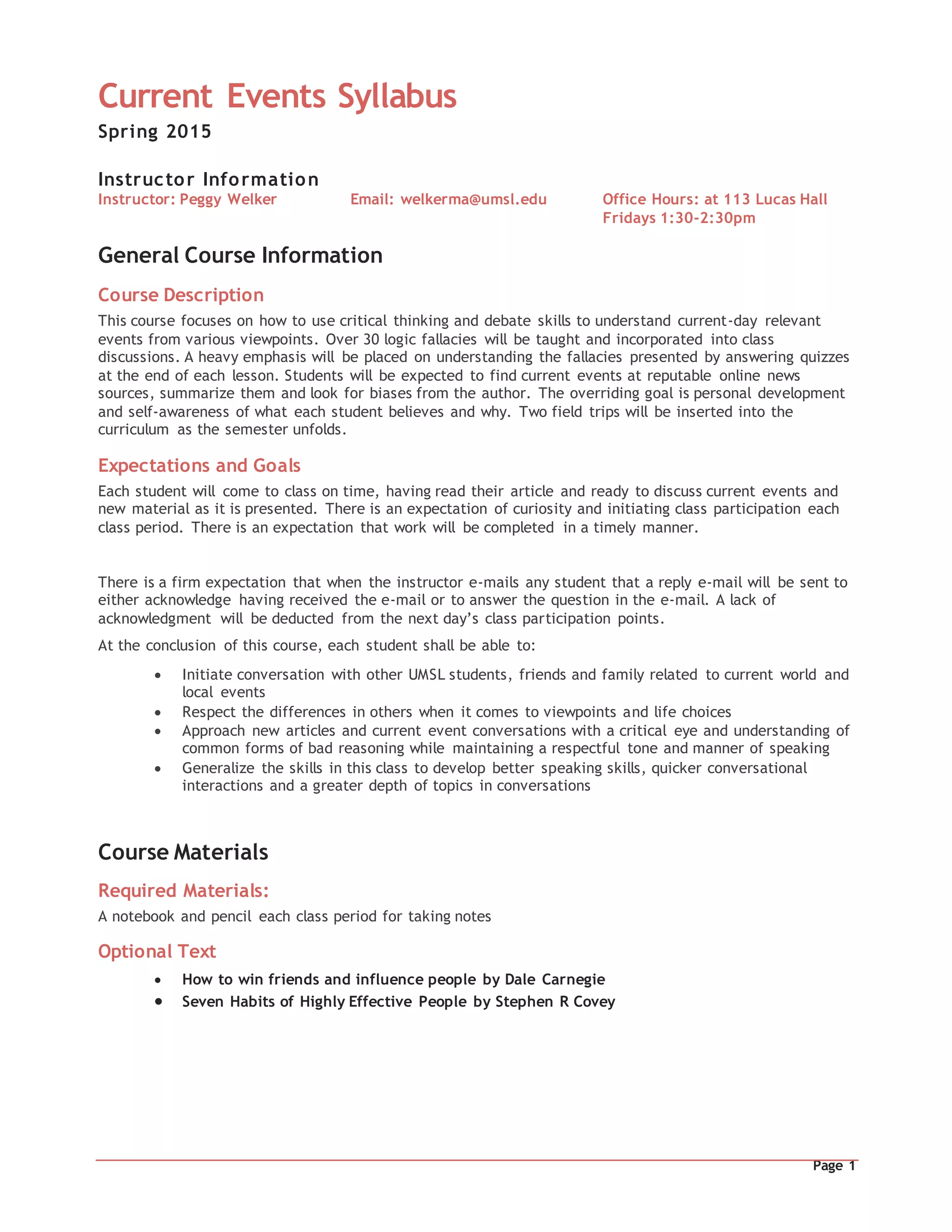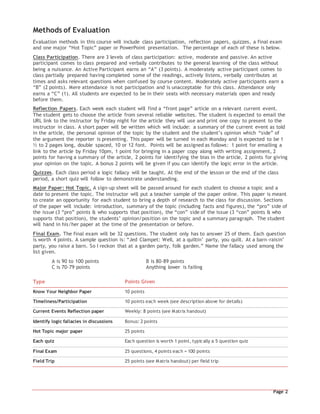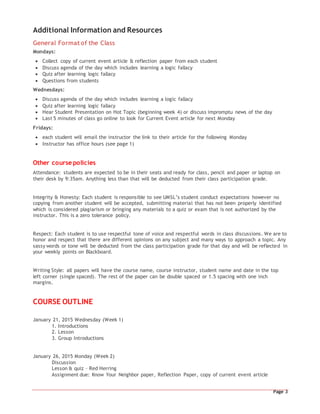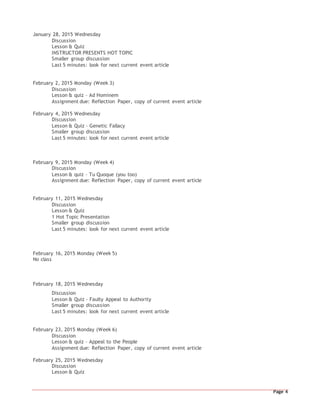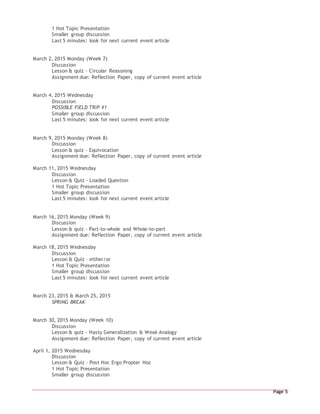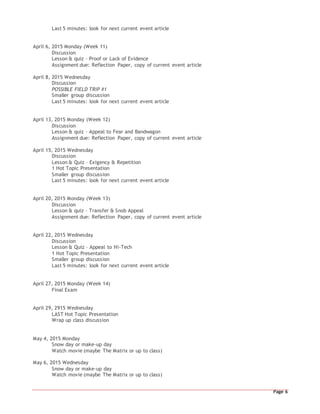This document provides the syllabus for a current events course. It outlines the course description, expectations, evaluation methods and general schedule. The course focuses on developing critical thinking skills to understand current events from various viewpoints by learning about logic fallacies. Students will find current news articles each week, identify biases, and discuss topics in class. Evaluation will include participation, reflection papers on weekly articles, quizzes on logic fallacies, a major research paper, and a final exam. The goal is for students to have respectful conversations about diverse views and opinions on current topics.
